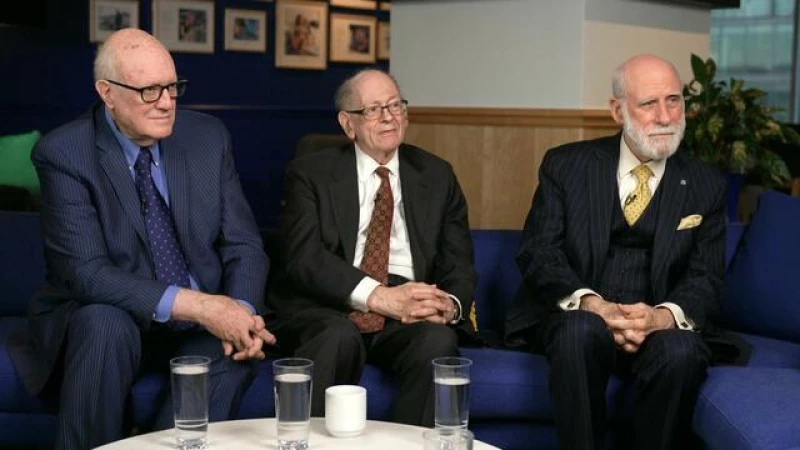In a world where information is readily available at our fingertips, thanks to the internet, we often overlook the incredible network that powers it all. At the core of this technological advancement are visionaries like Vint Cerf, Steve Crocker, and Bob Kahn, whose innovative work has shaped the digital landscape we inhabit today.
Despite their remarkable accomplishments, these trailblazers remain humble about their contributions. "Most people don't truly understand what the internet is," remarked Kahn, highlighting a common misconception.
Their journey commenced with a simple yet groundbreaking concept: creating the necessary technologies and software to transmit data from one computer to another, ultimately connecting people worldwide.
"I see the internet as the embodiment of its protocols," Kahn expressed, delving into a philosophical perspective on the matter.
"Bob's viewpoint is quite intriguing," added Cerf. "It involves translating theoretical frameworks into tangible components like computers and routers to make the system operational."
"The essence lies in the concept of how it should operate. This enables the continuous development of new technologies that function in innovative ways, enhancing the internet's allure," stated Cerf.
This approach facilitated the transformation of their initial networks into a vast interconnected world of laptops, smartphones, speakers, and headsets. This evolution fundamentally altered the way both users and technology interact to accomplish tasks.
Cerf remains perpetually amazed by the intricate web of components that must seamlessly function to deliver search results with a simple Google query.
The internet's inception can be traced back to a military tool known as the ARPANET, which was a collaborative effort involving individuals like Joseph Haughney, a retired major in the U.S. Air Force who passed away recently. Originally designed to support military operations, ARPANET's role sharply contrasts with the internet's current function as a hub for social interaction, entertainment, and community engagement.
"I remember that my dad used to bring in this technology, wheel it over to my mom, and nobody really understood what it was," reminisced Haughney's daughter, Christine Haughney Dare-Bryan.
As her father aged, Dare-Bryan, an editor at Inc. magazine, took it upon herself to document his experiences, creating a podcast dedicated to the pioneers of the internet. She chose a term her father had previously coined to describe some of these visionaries as the title for the podcast.
During a recent interview, Dare-Bryan referred to them as "computer freaks." He expressed concern about these individuals potentially causing harm to the beloved ARPANET. Instead of being used for socializing and community building, the platform was at risk due to these computer enthusiasts.
While their contributions have undoubtedly enhanced our daily lives in numerous ways, there have been challenges related to privacy and personal relationships.
The proliferation of misinformation and disinformation is a pressing issue. Cerf, however, remains steadfast in his stance, attributing internet misuse to human behavior rather than technological shortcomings. He firmly believes that accountability lies with the users.
Reflecting on his involvement, Cerf expressed a desire for the internet to remain an integral part of society. He hopes that future generations will acknowledge his modest role in its development.







